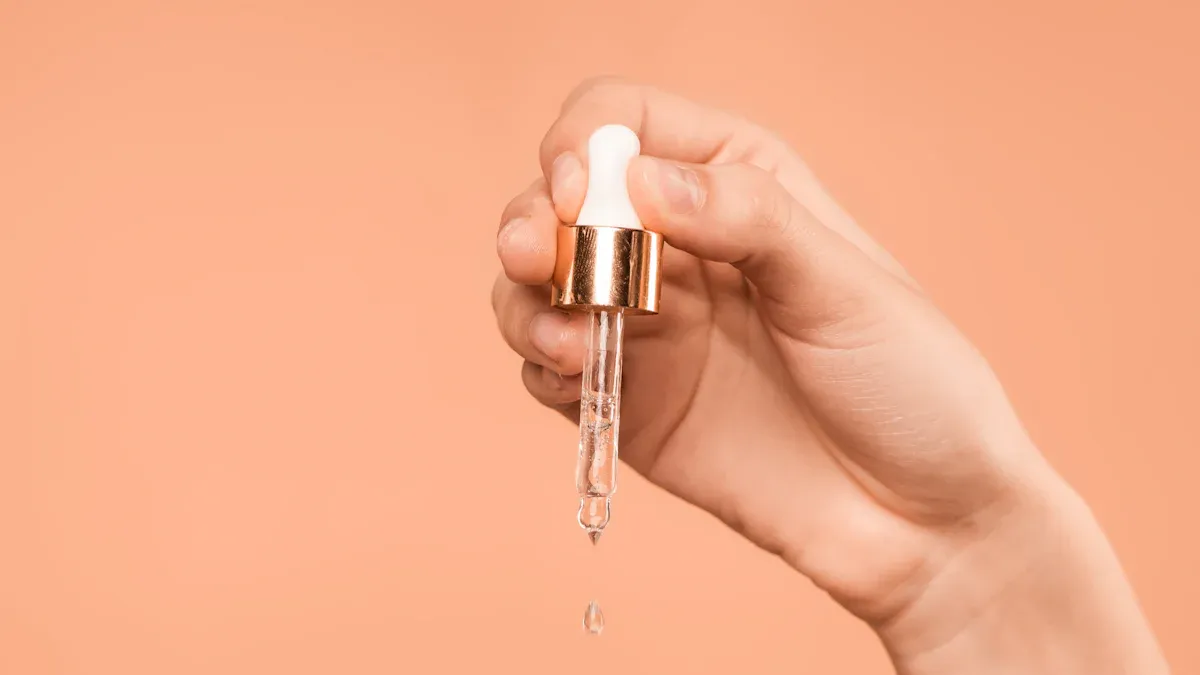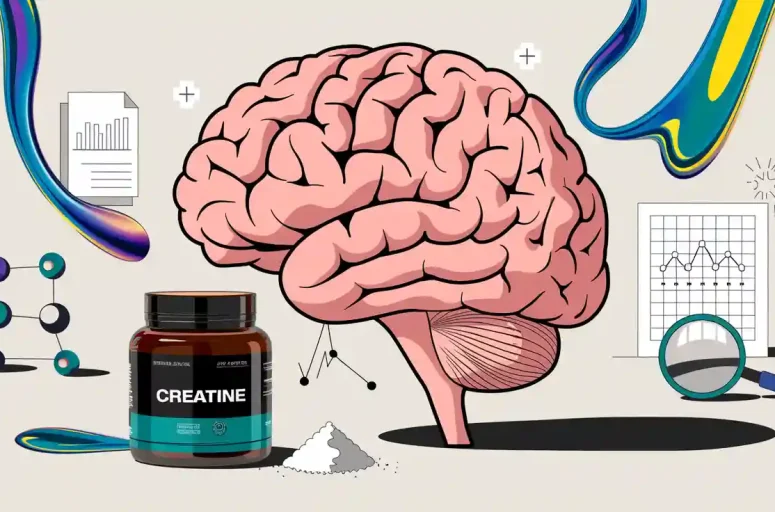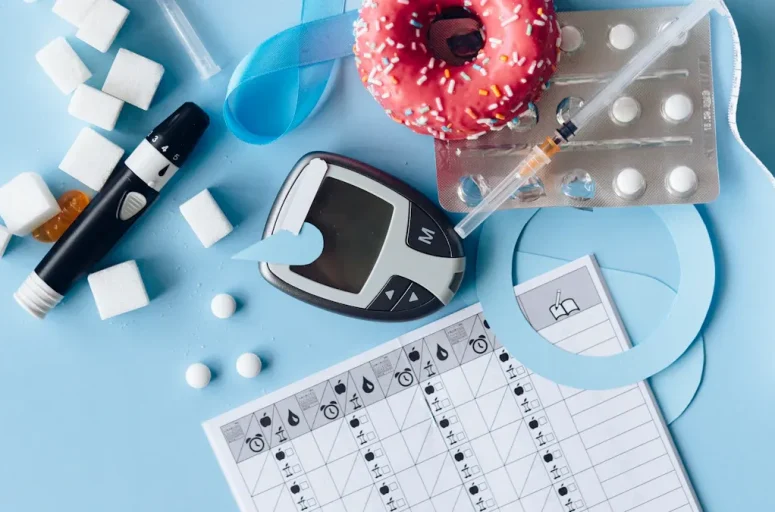
Your skin looks bright because of its strength and moisture. Collagen is a protein that keeps skin tight and stretchy. As you age, collagen levels drop, causing dryness and wrinkles. Collagen peptides can help by replacing lost collagen. Research shows they improve skin feel and moisture in 28 days. Bigger changes happen after 56 days of use. Another study showed a 65% increase in collagen and fewer wrinkles in 8 weeks. Collagen peptides work inside your body to make skin glow and look younger.
Key Takeaways
Collagen is important for healthy skin. It keeps skin firm and stretchy. As you get older, collagen levels drop. This causes wrinkles and dry skin.
Collagen peptides can help replace lost collagen. They improve skin moisture and texture in about 28 days.
Using collagen peptides often can make skin more elastic. It can also reduce wrinkles, making skin look younger and healthier.
Pick good-quality collagen supplements that are hydrolyzed. This helps your body absorb them better. Look for products with Type I and III collagen for skin benefits.
To get the best results, take 5-10 grams of collagen peptides daily. Being consistent helps improve skin hydration and elasticity.
Eat healthy foods with Vitamin C and zinc. This can make collagen peptides work better for your skin.
Good habits like wearing sunscreen, sleeping enough, and reducing stress can help keep collagen levels up. These habits also improve how your skin looks.
Collagen peptides are safe for most people. But talk to a doctor if you have allergies or health issues before using them.
Understanding Collagen and Collagen Peptides
What Is Collagen?
The role of collagen in keeping skin healthy
Collagen is the most common protein in your body. It helps your skin stay strong and firm. Without enough collagen, skin can sag and lose its shape.
“Collagen keeps skin firm and youthful,” says Dr. Ohara Aivaz.
Collagen also helps make fibroblasts, which grow new skin cells. This process replaces old skin cells, keeping skin fresh and glowing.
How collagen supports skin’s structure and stretchiness
Collagen acts like a support system for your skin. It holds skin together and makes it stretchy. This stretchiness helps prevent wrinkles and fine lines.
Collagen helps fibroblasts grow new skin cells.
It replaces old skin cells with fresh ones.
It gives skin strength, shape, and stretchiness.
Collagen also helps joints and protects organs, but it’s very important for skin health.
What Are Collagen Peptides?
How collagen peptides are made and used
Collagen peptides come from breaking down collagen into smaller pieces. This process, called hydrolysis, makes them easier to absorb. They are made from animal skin, bones, or fish scales.
Collagen peptides come from broken-down collagen.
Hydrolysis makes them easy for the body to use.
They improve skin moisture and stretchiness.
Main differences between collagen and collagen peptides
Collagen is a big protein, but peptides are smaller and easier to absorb. Peptides work faster and help your body make more collagen naturally.
Why Collagen Peptides Are Important for Skin
What happens to skin when collagen is lost
As you get older, your body makes less collagen. This starts in your 20s and speeds up later. Less collagen makes skin thinner, drier, and wrinkled. Skin also loses its firmness and looks older.
How collagen peptides fix skin problems
Collagen peptides can help with collagen loss. A study showed an 80.02% increase in skin collagen after 12 weeks. They also raised hyaluronic acid, which keeps skin hydrated, by 7.05%. These changes make skin more elastic and moist.
Collagen peptides also heal wounds faster and reduce fine lines. They help your skin repair itself, making it healthier and brighter.
Scientific Evidence Supporting Collagen Peptides for Skin Health
Collagen Peptides and Skin Hydration
How collagen peptides improve skin moisture levels
Your skin needs water to stay soft and healthy. Collagen peptides help your skin hold water better. They increase water in the top skin layer, called the stratum corneum. This stops water from escaping, keeping your skin moist.
Collagen peptides also boost natural moisturizers in your skin. These moisturizers, called NMF, keep skin smooth and soft. By raising NMF levels, peptides prevent dryness and flakiness.
Research findings on hydration benefits
Studies show collagen peptides improve skin hydration:
Taking collagen peptides increased water in the skin’s top layers.
Water loss through the skin decreased, keeping it hydrated.
Skin hydration improved by 28% after 8 weeks of use.
91% of people noticed their skin felt more moist.
Study | Findings |
|---|---|
Oral collagen peptides and skin hydration | Daily collagen peptides improve skin moisture and elasticity. |
Collagen Peptides and Skin Elasticity
The role of collagen peptides in enhancing elasticity
Elasticity means your skin bounces back after stretching. Collagen peptides make skin firmer by helping it produce more collagen. This strengthens the skin’s deeper layers.
Collagen peptides also help make elastin, a protein that keeps skin stretchy. With regular use, skin becomes less saggy and more elastic.
Clinical studies on elasticity improvements
Studies show collagen peptides improve skin elasticity:
Study | Findings | Statistical Significance |
|---|---|---|
De Luca et al. | Skin elasticity improved a lot | p < 0.0001 |
Maia Campos et al. | Skin got stronger after 90 days | N/A |
Lee et al. | Skin elasticity rose from 0.66 to 0.75 | p < 0.05 |
Yoon et al. | 12 weeks improved elasticity by 3.25 | N/A |
Open study | Elasticity improved by 38.31% in 3 months | N/A |
Collagen Peptides and Wrinkle Reduction
How collagen peptides stimulate collagen production
Wrinkles happen when skin loses collagen over time. Collagen peptides help your body make more collagen. This reduces fine lines and wrinkles.
Collagen peptides also boost genes like COL1A1, which help make collagen. This makes skin stronger and younger-looking.
Evidence of reduced wrinkles and anti-aging effects
Research shows collagen peptides reduce wrinkles:
Collagen keeps skin tight and smooth.
Studies show collagen supplements reduce wrinkles and sagging.
Trials showed an 83.6% wrinkle improvement after 3 months.
Metric | Baseline | Month 3 | Statistical Significance |
|---|---|---|---|
Global Wrinkles Score | 5.9 | 5.0 | p < 0.0001 |
Percentage of Subjects Improved | N/A | 83.6% | N/A |
Skin Elasticity (R2 Score) | N/A | 0.74 | p < 0.0001 |
Overall Skin Quality Improvement | N/A | 100% | N/A |
Adding collagen peptides to your routine can make skin smoother. It helps skin stay hydrated and reduces wrinkles.
Practical Tips for Using Collagen Peptides

Picking the Best Collagen Supplement
Different types of collagen and their benefits
Collagen has several types, but Type I, II, and III are key. Type I helps skin stay strong and stretchy. Type II supports healthy joints. Type III works with Type I to keep skin firm and hydrated. For glowing skin, choose a supplement with Type I and III.
How to find good-quality collagen products
Not all collagen products are the same. To pick a good one:
Look for hydrolyzed collagen or peptides, which absorb easily.
Check for third-party testing to ensure safety and quality.
Avoid products with fake additives or fillers.
Read reviews from trusted sources like ConsumerLab for top choices.
How to Use Collagen Properly
Daily collagen peptide dosage recommendations
The right dose depends on your needs. For better skin, take 5-10 grams daily. If you have joint pain, up to 20 grams may help. Splitting doses into two parts can improve results.
Dosage Range | Benefit | Time Needed |
|---|---|---|
2.5-5g daily | Better skin elasticity | 8 weeks |
5g daily | Less joint pain | 12 weeks |
How long before results show
Using collagen takes patience. Skin hydration and elasticity improve in 28 days. By 84 days, wrinkle depth reduces, and skin density increases by 6.3%.
Time Period | Changes | Benefits |
|---|---|---|
28 days | Wrinkle depth reduces | Skin feels more elastic and hydrated |
84 days | Skin density rises by 6.3% | Wrinkles shrink in size and volume |
Making Collagen Peptides Work Better
Pairing collagen with a healthy diet
Eating well boosts collagen’s effects. Vitamin C and zinc help your body make collagen. Foods like oranges, spinach, and nuts are great sources. Mixing marine and bovine collagen improves skin and reduces aging signs.
Benefit | Details |
|---|---|
Skin Support | Marine and bovine collagen improve skin structure. |
Anti-Aging | Reduces wrinkles and signs of aging. |
Nutrient Role | Vitamin C and zinc help collagen work better. |
Gut Health | Supports gut health, which helps skin. |
Habits to naturally increase collagen
Certain habits protect and boost collagen:
Use sunscreen to avoid UV damage.
Sleep 7-9 hours to maintain collagen.
Don’t smoke, as it harms collagen.
Manage stress to lower cortisol, which saves collagen.
Exercise to improve skin and overall health.
Combining collagen with these habits gives your skin the best results.
Are Collagen Peptides Right for Everyone?
Who Can Use Collagen Peptides?
Age groups and skin problems that benefit the most
Collagen peptides help people of all ages. Older adults see bigger changes. By age 40, your body loses about 1% of collagen yearly. This loss makes skin weaker and causes wrinkles. If you’re over 40, collagen can keep skin firm and stretchy.
Younger people under 40 can also use collagen. Their collagen levels are higher, but peptides help keep skin healthy longer. A study found people aged 40-60 had the best improvements in skin elasticity and moisture.
Treatment Group | Control Group | Total | |
|---|---|---|---|
Under 40 | 4 (12.9%) | 3 (9.7%) | 7 (11.2%) |
40-60 | 14 (45.2%) | 16 (51.6%) | 30 (48.4%) |
Over 60 | 13 (41.9%) | 12 (38.7%) | 25 (40.3%) |
If you have wrinkles, dry skin, or sagging, collagen peptides can help. They also work for people with skin dryness or less elasticity.
Clearing up myths about collagen supplements
Some think collagen only helps older people. This is false. Collagen peptides are good for anyone wanting better skin health. Another myth is that collagen supplements are unsafe. Studies show they are safe when used correctly.
Some say collagen doesn’t work because digestion breaks it down. But hydrolyzed collagen peptides are made to absorb easily. Your body uses them well to improve skin.
Safety and Things to Know
Possible side effects of collagen peptides
Collagen peptides are safe for most people. Some may feel full or heavy in their stomach after taking them. Rarely, people get mild skin issues like rashes or acne.
In rare cases, allergic reactions like hives or breathing trouble can happen. If you have food allergies, check if the collagen comes from cows or fish. Some users notice a small rise in blood pressure, but this is uncommon.
When to ask a doctor before using collagen
Talk to a doctor before using collagen peptides if you have health issues or allergies. Pregnant or breastfeeding people should also ask for advice. If you take medicine or have food sensitivities, a doctor can help you use collagen safely.
Knowing your body’s needs helps you use collagen peptides safely. With regular use, they can make your skin healthier and younger-looking.
Collagen peptides help your skin look young and bright naturally. They boost hydration, make skin stretchy, and reduce wrinkles. This happens because they help your body make more collagen. Research shows products like Skinade® improve skin texture and fight aging signs. Unlike creams, collagen peptides work inside your body for lasting effects.
Using collagen peptides is easy and helpful. Pick a good-quality supplement and eat healthy foods. Add good habits like sleeping well and staying active. With regular use, your skin will glow and feel healthier. 🌟
FAQ
1. What are collagen peptides made from?
Collagen peptides come from animals like cows, fish, or chickens. They are made by breaking collagen into smaller pieces. This process, called hydrolysis, helps your body absorb them easily.
2. How long does it take to see results from collagen peptides?
You might see better skin hydration and elasticity in 4 weeks. Wrinkles and firmer skin usually improve after 8 to 12 weeks of regular use.
3. Are collagen peptides safe for daily use?
Yes, most people can safely use collagen peptides every day. Side effects are rare. If you have allergies or health issues, ask your doctor before starting.
4. Can collagen peptides help with acne scars?
Collagen peptides help your skin heal and repair itself. They may reduce acne scars by increasing collagen and improving skin flexibility.
5. Do collagen peptides work better than topical creams?
Collagen peptides work inside your body to rebuild skin. Creams work on the surface. Using both together can give better results for hydration and anti-aging.
6. Can vegetarians use collagen peptides?
Most collagen peptides come from animals, so they are not vegetarian. Vegetarians can try plant-based collagen boosters to help their body make collagen.
7. What’s the best time to take collagen peptides?
You can take collagen peptides anytime during the day. Many people take them with meals in the morning or evening. Being consistent is more important than timing.
8. Do collagen peptides help with hair and nails?
Yes, collagen peptides make hair and nails stronger by supporting keratin. They can also reduce breakage and improve their overall health.
💡 Tip: Eat healthy foods with vitamins to get the best results with collagen peptides.


